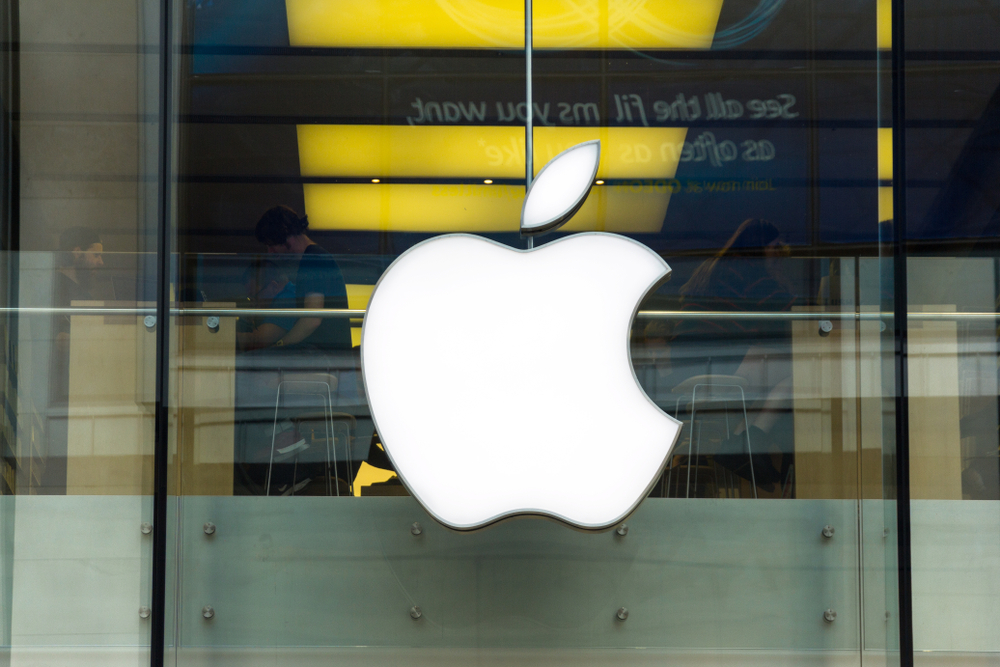Apple patches actively exploited iPhone, iPad zero-day and 18 other security flaws
The out-of-bounds write error is the eighth actively exploited zero-day impacting Apple hardware this year and could facilitate kernel-level code execution


Apple has released an update providing a number of patches for iOS and iPadOS, including one zero-day that “may have been actively exploited".
Tracked as CVE-2022-42827, the zero-day vulnerability was the result of an out-of-bounds write error in the kernel, which could be used by threat actors to execute malicious code on the kernel level.
RELATED RESOURCE

How to trust your inbox with Cloudflare Area 1
Why your current email security may not be enough
This could allow for custom, potentially malicious programs to be run on the victim’s device, as well as putting all data on it at serious risk of exfiltration or destruction.
An out-of-bounds write error occurs when a program writes beyond the end of an intended buffer or specified array, and typically results in a crash or corruption of data. If exploited, they can be used to modify system data and execute code on impacted devices remotely.
In its post for the iOS 16.1 and iPadOS 16 security updates, Apple noted that through the flaw an “application may be able to execute arbitrary code with kernel privileges".
Beyond this, the firm offered little detail of the precise nature of the zero-day, in line with its policies on security issues and in accordance with its longstanding approach of providing little detail on security incidents.
“For the protection of our customers, Apple doesn't disclose, discuss, or confirm security issues until an investigation has occurred and patches or releases are generally available,” stated a notice in the update post.
Get the ITPro daily newsletter
Sign up today and you will receive a free copy of our Future Focus 2025 report - the leading guidance on AI, cybersecurity and other IT challenges as per 700+ senior executives
Affected devices include all of its smartphones from iPhone 8 and above, all models of the iPad Pro, iPad Air 3rd generation and above, and iPad and iPad Mini - both 5th generation and above.
Beyond the zero-day, the latest security update also provides patches for 18 other vulnerabilities. Of these, two more were in the kernel, though these are not thought to be actively exploited, while three were in WebKit, Apple’s browser engine which powers Safari.
Other flaws were fixed in the point-to-point protocol (PPP), a TCP/IP protocol used to send data between devices, as well as in core Bluetooth and the GPU drivers.
The patch marks the ninth overall update addressing a zero-day flaw by Apple this year. In September, the tech giant patched a similar kernel vulnerability, which allowed for arbitrary code to be executed with kernel privileges. This vulnerability also affected macOS Monterey, and had been potentially exploited in the wild by the time it was patched.
In August, Apple patched a 'superpower' zero-day affecting WebKit, in which threat actors could use remote code execution (RCE) to alter web pages, which would then run malicious code on Apple devices that visited them.
More recently, earlier this month Apple was forced to release a fix for a denial of service vulnerability, tracked as CVE-2022-22658, affecting iPhones 8 and newer.
Apple said that processing a maliciously crafted message could lead to denial of service and was fixed in its iOS 16.0.3 by improving input validation.

Rory Bathgate is Features and Multimedia Editor at ITPro, overseeing all in-depth content and case studies. He can also be found co-hosting the ITPro Podcast with Jane McCallion, swapping a keyboard for a microphone to discuss the latest learnings with thought leaders from across the tech sector.
In his free time, Rory enjoys photography, video editing, and good science fiction. After graduating from the University of Kent with a BA in English and American Literature, Rory undertook an MA in Eighteenth-Century Studies at King’s College London. He joined ITPro in 2022 as a graduate, following four years in student journalism. You can contact Rory at rory.bathgate@futurenet.com or on LinkedIn.
-
 Bigger salaries, more burnout: Is the CISO role in crisis?
Bigger salaries, more burnout: Is the CISO role in crisis?In-depth CISOs are more stressed than ever before – but why is this and what can be done?
By Kate O'Flaherty Published
-
 Cheap cyber crime kits can be bought on the dark web for less than $25
Cheap cyber crime kits can be bought on the dark web for less than $25News Research from NordVPN shows phishing kits are now widely available on the dark web and via messaging apps like Telegram, and are often selling for less than $25.
By Emma Woollacott Published
-
 Hackers are targeting Ivanti VPN users again – here’s what you need to know
Hackers are targeting Ivanti VPN users again – here’s what you need to knowNews Ivanti has re-patched a security flaw in its Connect Secure VPN appliances that's been exploited by a China-linked espionage group since at least the middle of March.
By Emma Woollacott Published
-
 Broadcom issues urgent alert over three VMware zero-days
Broadcom issues urgent alert over three VMware zero-daysNews The firm says it has information to suggest all three are being exploited in the wild
By Solomon Klappholz Published
-
 Nakivo backup flaw still present on some systems months after firms’ ‘silent patch’, researchers claim
Nakivo backup flaw still present on some systems months after firms’ ‘silent patch’, researchers claimNews Over 200 vulnerable Nakivo backup instances have been identified months after the firm silently patched a security flaw.
By Solomon Klappholz Published
-
 Everything you need to know about the Microsoft Power Pages vulnerability
Everything you need to know about the Microsoft Power Pages vulnerabilityNews A severe Microsoft Power Pages vulnerability has been fixed after cyber criminals were found to have been exploiting unpatched systems in the wild.
By Solomon Klappholz Published
-
 Vulnerability management complexity is leaving enterprises at serious risk
Vulnerability management complexity is leaving enterprises at serious riskNews Fragmented data and siloed processes mean remediation is taking too long
By Emma Woollacott Published
-
 A critical Ivanti flaw is being exploited in the wild – here’s what you need to know
A critical Ivanti flaw is being exploited in the wild – here’s what you need to knowNews Cyber criminals are actively exploiting a critical RCE flaw affecting Ivanti Connect Secure appliances
By Solomon Klappholz Published
-
 Researchers claim an AMD security flaw could let hackers access encrypted data
Researchers claim an AMD security flaw could let hackers access encrypted dataNews Using only a $10 test rig, researchers were able to pull off the badRAM attack
By Solomon Klappholz Published
-
 The threat prevention buyer's guide
The threat prevention buyer's guideWhitepaper Find the best advanced and file-based threat protection solution for you
By ITPro Published